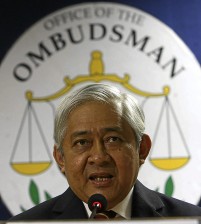
Solicitor General Francis Jardeleza. INQUIRER PHOTO
MANILA, Philippines – The filing of a case in court against a drug suspect more than five years after her arrest bars her release even if the circumstances surrounding her capture were questionable, government lawyers told the Supreme Court.
Urbina was arrested by the Philippine National Police Anti-Illegal Drugs Special Operations Task Force on Dec. 14, 2007. The case against her companion was dismissed on Jan. 25, 2008. Urbina has been detained at the Philippine National Police Custodial Center in Camp Crame since then. She was only released early this June upon orders of the Court of Appeals after it granted her petition for habeas corpus.
But Solicitor General Francis Jardeleza argued before the high court that habeas corpus is no longer allowed since the Department of Justice already filed a case against Urbina before the Quezon City Regional Trial Court last May 9, 2013 which the Court of Appeals also nullified.
“Even if the arrest of a person is illegal, supervening events may bar his/her release or discharge from custody. What is to be inquired into is the legality of his detention as of, at the earliest, the filing of the application for a writ of habeas corpus, for even if the detention is at its inception illegal, it may, by reason of some supervening events, be no longer illegal at the time of the filing of the application,” Jardeleza said. Among the supervening events referred to by the government is the filing of a case for the offense for which Urbina is detained.
The appeals court, in its ruling, said being in prison for over 5 years without a case being filed against her due to government inaction is “unreasonable,” “intolerable” and “shockingly unimaginable.” It pointed that Urbina’s right to due process and speedy trial have been violated.
But Jardeleza said that the 30-day period for deciding cases under automatic review such as violations of the Dangerous Drugs Act was not mandatory but only “as far as [it is] practicable.”
He added that the resolution approving the filing of the case against Urbina went through a “rigorous review” from various offices of the DoJ.
“That the delay in the termination of preliminary investigation in this case was not inordinate may further be attributed to the sheer volume of cases being rigorously reviewed by the DoJ,” Jardeleza said.